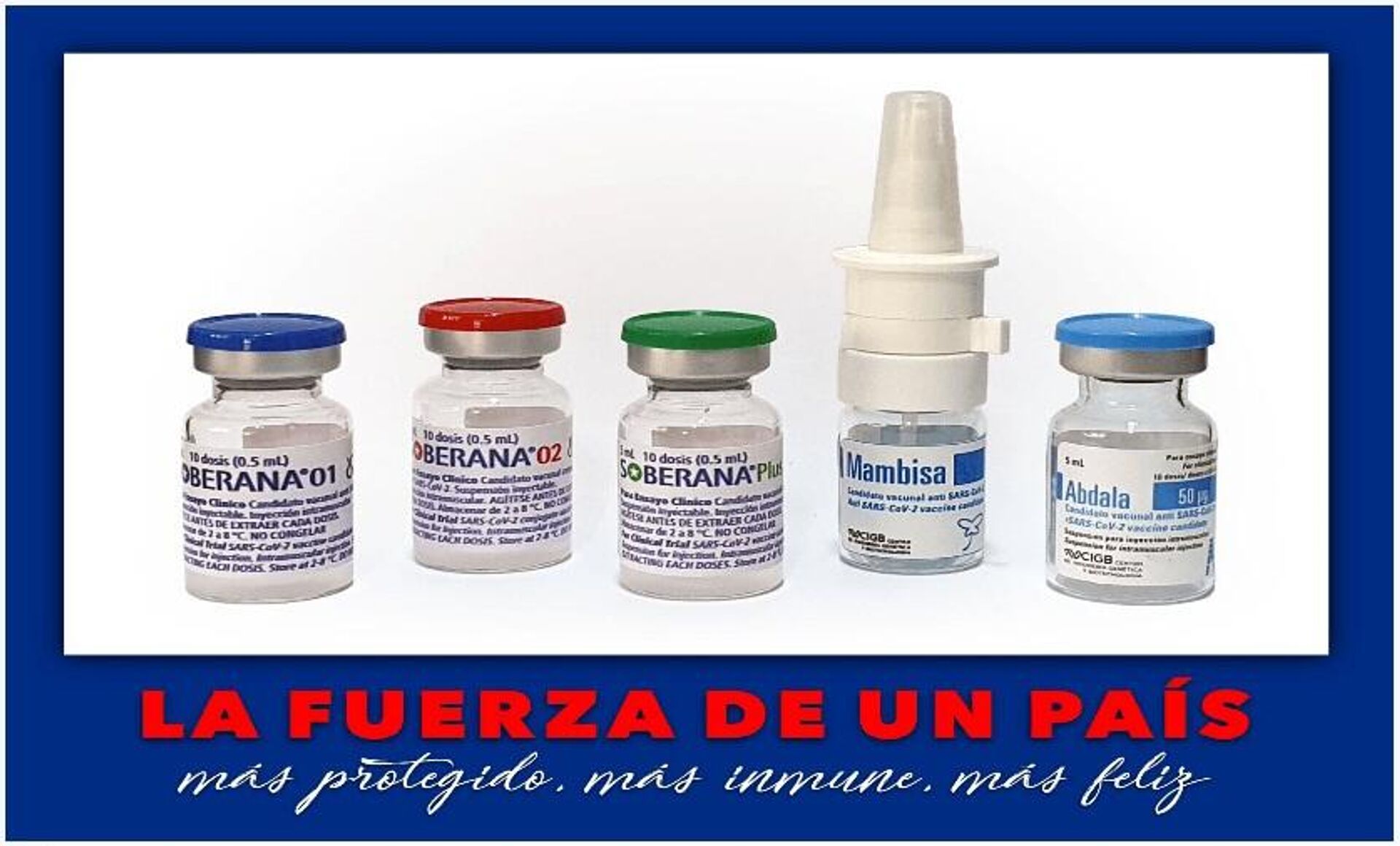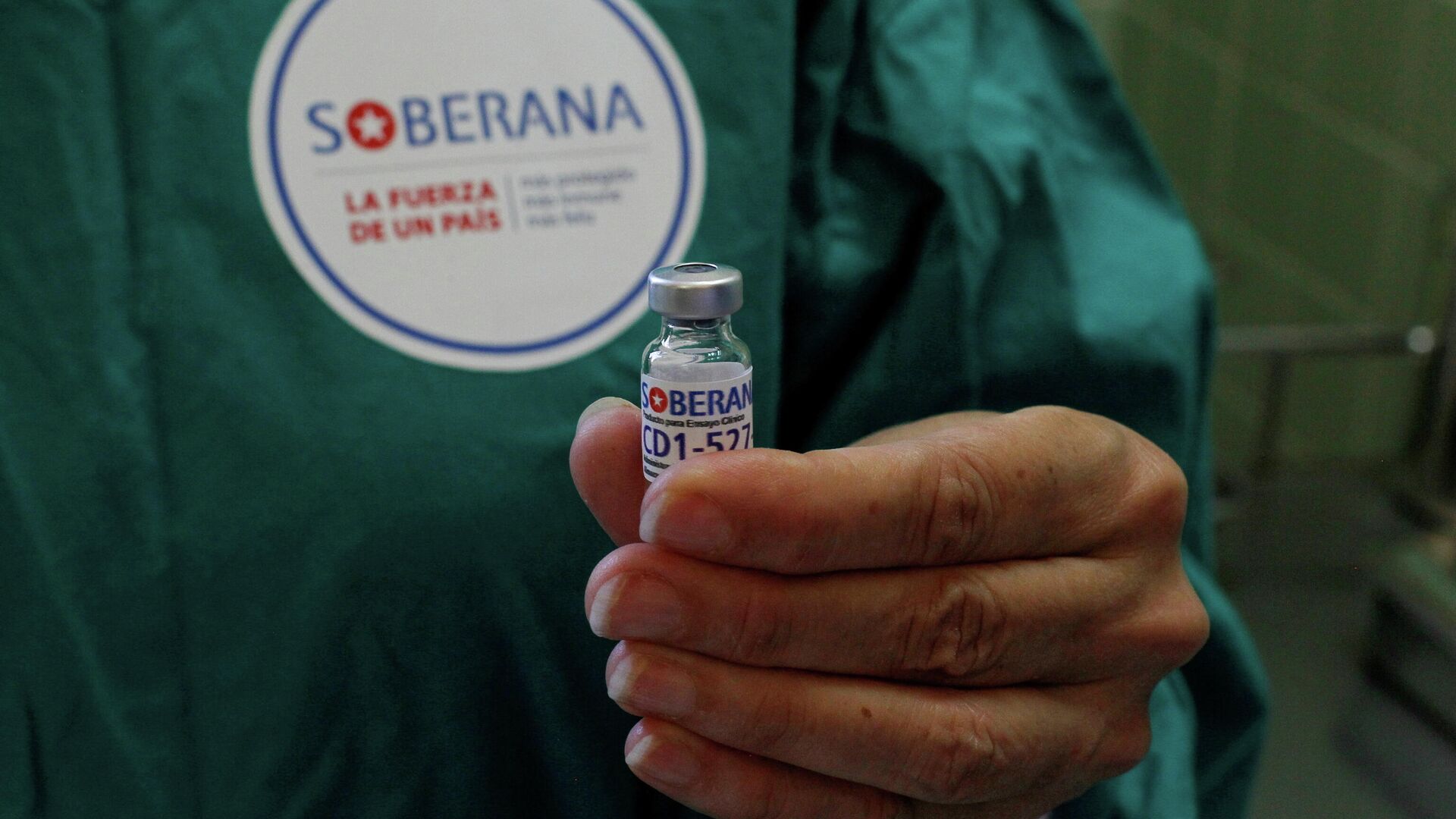Cuba Boasts 94.6% Have Gotten At least One Covid Vaccine Shot, Including Children as Young as Two
23:45 GMT 01.10.2021 (Updated: 18:30 GMT 19.10.2022)
Subscribe
Cuba announced on Thursday it has become one of the world’s most highly-vaccinated countries, with 94.6% of its population having received at least one COVID-19 shot. The socialist island nation has produced five vaccines, despite tightening US sanctions aimed at forcing a collapse of the government.
Radio Habana, a nationwide broadcaster operated by the Cuban government, reported Thursday that of those eligible to be vaccinated, 94.6% had received at least their first dose of a vaccine against SARS-CoV-2, the virus that causes COVID-19. In addition, 46.4% of the population has completed the vaccination program. Overall, 82.8% of the Cuban people have gotten at least one shot.
Cuba recently approved children between the ages of 2 and 18 for vaccination, and in the last three weeks, more than 1.6 million children have started their vaccination schedules with their first shots. At present, children are only allowed to receive Soberana Plus, one of five vaccines developed by Cuba’s robust biotech sector. A second vaccine, Abdala, is expected to soon be approved for pediatric use, and the Soberana 01 vaccine has also begun trials.
The accomplishment means Cuba not only has the highest vaccination rate in the Americas, but also one of the highest across the globe. To the north, the United States has bought more than three times the number of vaccines necessary to immunize its entire population, but distributed only a small amount of the excess to other nations, all while lagging behind dozens of other nations with its own vaccination program.
According to the US Centers for Disease Control and Prevention (CDC), 75.6% of those eligible for vaccination - people over the age of 12 - have received at least one shot, and 65.1% are fully immunized. Overall, 55.7% of the US population has been fully vaccinated.
US Sanctions ‘Cost Human Lives’
Cuban Foreign Minister Bruno Rodriguez called attention to the disparity, writing on Twitter on Thursday that the US had not offered Cuba any help fighting the pandemic.
“It has done quite the opposite, since it has hindered the purchase of inputs required by the national vaccination program and pharmaceuticals production,” Rodriguez said.
“In addition to applying Trump's inhumane measures, which he promised to review, Pres Biden not even included Cuba in the group of states where US unilateral measures limiting their capability to fight #COVID19 pandemic were lifted,” he added. “His insensitivity has cost human lives.”
In addition to applying Trump's inhumane measures, which he promised to review, Pres Biden not even included Cuba in the group of states where US unilateral measures limiting their capability to fight #COVID19 pandemic were lifted.
— Bruno Rodríguez P (@BrunoRguezP) October 1, 2021
His insensitivity has cost human lives.
2/2
The US trade embargo against Cuba has deprived the government of much-needed revenue it would have gotten from trade and especially from tourism. It has also frustrated their purchase of many goods, including essential medical goods like syringes, as engaging in transactions with many Cuban institutions can get foreign firms or governments sanctioned by the United States.
As a result, everything from spare parts to fuel is in short supply, and electricity is on only intermittently in many places as hospitals receive priority in order to keep their ventilators running. The brownouts helped provoke protests over the summer that the US claimed were against the government and rushed to support, slapping more sanctions on Cuba after the protests failed to become a putsch.
The shortages are so severe that peace activists in the United States organized a “Syringes for Cuba” campaign earlier this year to buy and ship 6 million hypodermic needles to the island to help with the vaccination campaign.
“Businesses which have traded with Cuba for decades suddenly told us they can no longer continue," Vicente Vérez, director of the Cuban Neuroscience Center and the lead developer of Cuba’s Soberana-2 vaccine, told NBC in August.
“Our biotech industry is working under conditions of limitations,” he added. “We make a great effort not to go over the electricity quota, because we know it will affect the population.”
The outlet noted that two Swiss companies that previously sold Cuba ventilators had recently ceased doing so after being bought out by a company in Illinois.
“The US pays lip service to the idea that medicines can be sent to Cuba,” Dr. Mitchell Valdés-Sosa, a member of Cuba’s Coronavirus Task Force, told NBC. “But there’s an explicit prohibition of anything being exported to Cuba that can be used for biotech. That includes vaccines.”
The 1992 Cuban Democracy Act, passed during what Cubans call the Special Period of heightened economic crisis after the dissolution of the Soviet Union, is a US law that bans exports of medicines, medical supplies, and equipment to Cuba if “the item to be exported could be used in the production of any biotechnological product.”
Cuban Vaccines Go Abroad
Nonetheless, Cuba has produced five COVID-19 vaccines, including Soberana 01 and 02, Soberana Plus, Abdala, and Mambisa. The best-performing ones, including the three-shot Abdala vaccine, have an effectiveness rivaling the best shots produced by western pharmaceutical giants.

The five indigenously-developed COVID-19 vaccines by Cuba: Soberana 01, Soberana 02, Soberana Plus, Mambisa, and Abdala. Caption reads: "the strength of a country. More protected, more immune, more happy."
Having announced it had produced enough vaccine doses for its domestic needs, Cuba has begun shipping its vaccines to willing buyers. Last week, Cuba shipped its first delivery of Abdala vaccines to fellow socialist nation Vietnam, which has rushed to obtain vaccines from China and the United States amid its largest COVID-19 outbreak yet.
In Venezuela, which is also hard-hit by US sanctions frustrating its ability to fight COVID-19, much less other illnesses, officials have had trouble buying vaccines for the country, as well. However, they have expressed some reservations about Abdala, which they have been running their own tests on since June in a partnership with Cuba.
“The characteristics of the Sputnik V vaccine have been published in scientific journals and its quality has been verified in independent clinical trials ... (and) the Sinopharm vaccine has been approved by the World Health Organization (WHO),” Venezuela’s National Academy of Medicine said earlier this week. “Abdala has not been approved by the WHO or any international regulatory agency.”
However, in other respects, Cuban-Venezuelan medical cooperation has been extremely close. Thousands of Cuban doctors have traveled to Venezuela to help offset the effects of US sanctions even before the pandemic, with new teams arriving in 2020 for Covid-specific work.
Earlier this week, Portuguese bank Novo Banco blocked a $12.7 million payment by Caracas to the Pan American Health Organization that would have purchased 14.5 million vaccines against a number of illnesses, including diphtheria and measles, two diseases that have made a comeback since US sanctions were imposed. After, European Parliament member Mick Wallace accused Novo Banco of engaging in “state-aided expropriation” of Venezuela assets.

